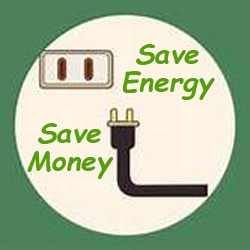The cost of many essentials is increasing and the list includes the cost to cool homes. Record-breaking heat has already begun even though it’s still five days until the official start of summer. A list of energy saving tips is below to help consumers save on the air conditioning bill.
Air conditioner
- Ensure that air conditioning unit is an energy efficient model.
- Keep cooling system in good running order. Schedule regular maintenance.
- Vacuum intake vents to remove dust. Do not block airflow with furniture or other objects.
- Clean or replace a/c filters at least once a month.
- Outside air conditioning units (condensers) shaded by trees or other means work more efficiently.
- Clean your air conditioner condenser/evaporator coils at the beginning of the season. Coils on inside units should be serviced by a trained technician.
- Keep debris and any other obstacles away from the condenser to avoid blocking airflow.
- If using central air conditioning, do not close vents in unused rooms. This could cause leaks in ducts.
Appliances/Electronics
- Be sure refrigerator is an energy efficient model. Side-by-side refrigerators use more energy than those with freezer on top. The refrigerator temperature should be 36 – 38 degrees. The freezer temperature should be 0 to 5 degrees.
- Vacuum refrigerator’s condenser coils about every three months.
- Wash only full loads of clothing and dishes. Ensure that dishwasher, washing machine and other appliances are energy efficient models.
- Whenever possible, use large appliances (washing machine, dryer, dishwasher, etc.) at night as they create heat.
- Dry loads of clothes back-to-back to take advantage of heat built up in the dryer.
- Clean the lint filter in dryer after every load so that it will dry more efficiently and require less running time.
- Close the door to the dryer room to keep from heating up the house.
- Microwave ovens and toaster ovens use less energy and cook food faster and produce less heat than an electric or gas oven. If using oven for an hour or more, shut the kitchen off from the rest of the home and turn on the stove exhaust to help take heat out of the kitchen. Also use outdoor grill when possible.
- Next to heating and cooling, water heaters use the most energy in homes. Lower the thermostat on water heater to 120 degrees. Wrapping your water heater with an insulation blanket saves energy.
- Turn down or shut off water heater when you will be away for extended periods.
- Unplug seldom-used appliances/electronics such as extra televisions and computers when not in use.
- Even when turned off, they continue to draw electricity.
- Laptop computers use significantly less energy than desktop models.
Miscellaneous
- Use window treatments that can help keep heat out. Install solar screens, keep blinds and drapes closed. Tint film can also help save energy.
- Install a programmable thermostat. When no one is home, program the thermostat to a higher temperature and set it to cool down when it’s time to return home. Try setting the temperature at 78 degrees when family is at home.
- Use fans to cool off but turn them off when you leave the room. Fans cool people when blowing directly on them, but they do not lower the temperature of rooms. If no one is in the room, the fan is a waste of electricity.
- Turn lights off when not in use. Take advantage of daylight when possible.
- Seal cracks to prevent hot air from entering home.
- Be sure attic insulation is sufficient.
- When not using fireplace, keep flue dampers closed. Otherwise, air conditioning escapes.
- Well-placed shade trees can reduce indoor home temperatures by up to 20 degrees.
Garland Power & Light offers savings programs and more energy savings tips. 972-205-2671.
Sources:
https://www.gpltexas.org/save-energy-money/energy-conservation-tips


